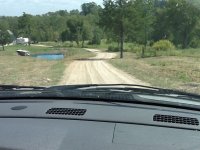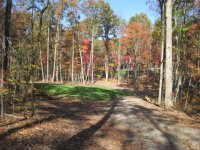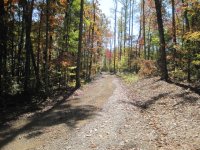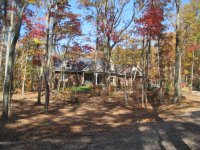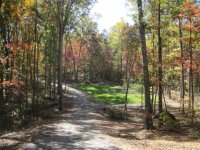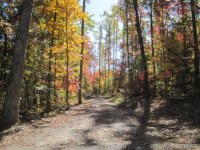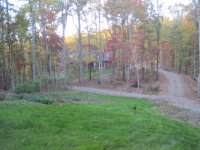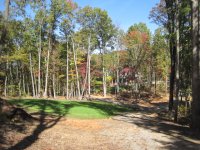Pettrix
Platinum Member
Why not just put down ABC, aka road base gravel, and be done with it? The part of our driveway we use everyday is over 600 feet long, then we have another 1000 feet of private road/driveway before the road becomes somewhat public for another 1,200 feet and finally hits pavement. All of this is gravel. Dust is a function of speed as well as moisture. When I see the dust kick up, I slow down since a neighbors house is close to the road. Dust is only kicked up when people drive too fast. Drive slow and there is no dust. From our gate to our house, I drive in second and maybe third gear which is not fast and I don't see dust. Certainly by the time I get to the driveway any dust is gone because I am in first or second gear.
Put down gravel, drive slow, and save a lot of money. :laughing:
Later,
Dan
I currently have AB in some areas and it works for now but I don't like it because of the constant upkeep. Every time it rains, or the amount of vehicles that drive on it, the AB gets eroded & removed and requires adding more AB every couple of years. Rainfall takes away the top layer AB and the sides of the AB on the road. I also have an area that is more steep of a grade and the car tires dig in and cause ruts & washboards as it attempts to gain traction while climbing the grade. If it snows, that area becomes very difficult to navigate. Then add the dust issues and then the constant weed spraying, it becomes a maintenance issue.
A nearby neighbor has the AB road base for the main road and it develops serious ruts and requires calling in the big dump trucks to drop numerous tons of AB every 2 years or so to fill in the constant erosion. Then one has to spread it with a box blade.
I hear you about saving money and agree but if I wanted to really save money, I would just continue living in the big city. It's cheaper, houses are less expensive, the roads are all paved already, and one can get a new home for around $70 sqft, finished with a warranty. Rural living and rural home building is not a cheap endeavor. For instance, it currently costs me $150 a month for the city sewer, water and trash. To dig and install a well will cost me $10,000 and to install a septic system will cost me $5,000. To recoup those costs will take me 8 1/2 years.
I know if I don't pave the road I will always regret not doing. If I don't incorporate it into the home loan, I will never be able to pave the road later on because I would have to pay the $35k all cash out of pocket. Is it worth adding an extra $188 a month in the mortgage payment? I believe so but overall building rural is not being done for ROI, it's being done for a different lifestyle and personal satisfaction. If I look at it as a simple financial endeavor, then the numbers tell me to stay put in the city where I am currently at.
